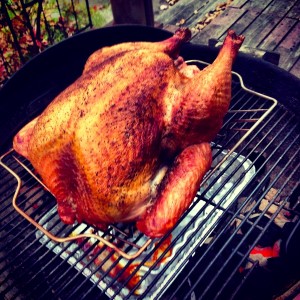While some blogs dedicate time to offering snappy comebacks for your annoyingly liberal cousin from Boulder, we thought Thanksgiving should actually be a time of thanks. And, frankly, we assume you’ve been working on those witticisms all year round.
Among the things we are thankful for is (finally) understanding where U.S. Sen. Michael Bennet stands on Syrian refugees. We’re kidding. We still have no idea – 13 days later.
Nonetheless, the Cato Institute has some food for thought – and for thanks – this Thanksgiving. It cost fewer of your labor hours to purchase your Thanksgiving dinner this year. That’s right. While the cost of food has increased since last year, so, too, have our wages (at least theoretically) and more than the cost of our chow.
In 2014, the cost to purchase Thanksgiving goods, according to an index by the Farm Bureau, was $49.41. This year, the cost is $50.11. But, if, as Cato suggests, you adjust the nominal cost of Thanksgiving dinner by rise in nominal wages, the amount of time spent earning that Thanksgiving dinner has gone down from two hours, 23 minutes, and five seconds in 2014 to two hours 21 minutes and 57 seconds this year.
Even better? The number has fallen drastically since 1986, the first year of the Farm Bureau’s index. That year, an average worker would have had to work three hours, twelve minutes, and 27 seconds to earn his or her Thanksgiving dinner.
Of course, if you shopped at Whole Foods and bought a grain-fed, antibiotic-free, free-range turkey like your cousin from Boulder suggested, this calculation is out the window entirely. Regardless, the fact that the price of food has fallen in comparison to wages is certain something to be thankful for this year and every year.

